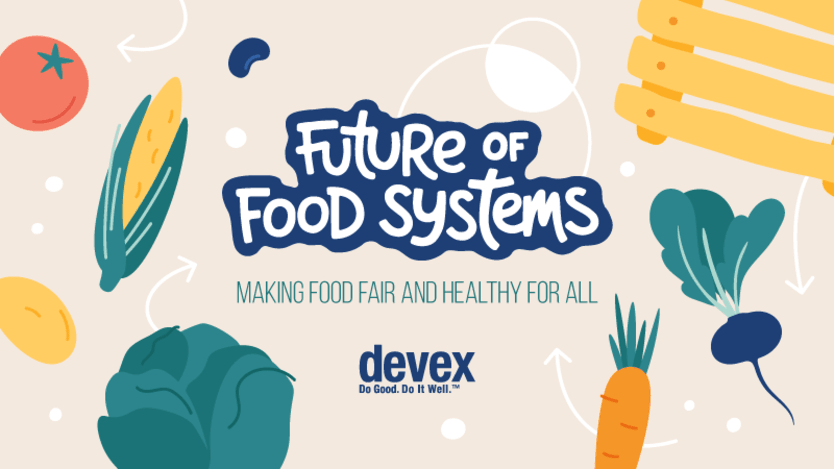
Nutrition expert Shakuntala Haraksingh Thilsted has won the 2021 World Food Prize for her work in nutrition-sensitive aquaculture.
Thilsted, a native of Trinidad and Tobago, is the global lead for nutrition and public health at WorldFish, a CGIAR research center in Malaysia that focuses on scaling aquatic food systems in a sustainable way.
Part of our The Future of Food Systems series
Find out how we can make food fair and healthy for all. Join the conversation using the hashtag #FoodSystems and visit our The Future of Food Systems page for more coverage.
Awarded by the World Food Prize Foundation, the $250,000 prize is considered the “Nobel Prize” of food and agriculture, and is awarded annually to someone who has dedicated their career to eradicating global hunger through improving the quality, quantity, or availability of food.
As the world considers food systems reform ahead of the United Nations Food Systems Summit this September, aquatic foods need to be given as much consideration as terrestrial foods,Thilsted told Devex.
“We realized that fish and other aquatic foods were superfoods because these nutrients are critical for cognitive development in children, growth, and development in children, and also for the health and nutrition for mothers,” Thilsted said. “If you would want to use these superfoods for nourishing women and children, then of course you would have to have a supply, and then after the supply, you would have to get the fish from the ponds to the pot and to the mouths of women and young children.”
Thilsted first realized the important role fish can play in improving nutrition in the late 1980s, when she was working in Bangladesh with the International Center for Diarrhoeal Disease Research, which treats children experiencing severe malnutrition. She saw that small fish had high levels of available micronutrients and fatty acids, key to improving diets. Eating them also helps absorption of nutrients from other foods.
“From where I stand, there’s no way you can fix the food system, transform the food system without taking into account foods from water.”
— Shakuntala Haraksingh Thilsted, 2021 World Food Prize winnerTo ensure more families had access to small fish as a part of their diet, Thilsted helped develop pond polyculture systems that farmed small fish alongside larger fish. Doing so increased productivity and provided additional species diversity, which in turn provided greater nutritional diversity.
“The systems that I use are semi-intensive systems, because the cost in terms of feed is low. However, if you will look at other production systems, more intensive systems, you would be using other inputs of feeds and chemicals. So if you would take the whole of Asia and even Africa, the majority of the production systems is smallholders,” Thilsted said.
“In those respects, you have production systems that are sustainable because of the low use of inputs. That’s not the same as other production systems that you have in high-income countries.”
Thilsted serves as the vice chair of Action Track 3 of the Food Systems Summit, focused on boosting nature-positive production. She said that coastal populations that depend on the water for their food supply, whether from an ocean or the Great Lakes of Africa, need to have a large role in global discussions about food systems reform.
“There are many more voices from developing countries … With this opening up and many voices being heard, I do think that there is space to ensure that foods from water can play a role,” Thilsted said of the summit process.
“From where I stand, there’s no way you can fix the food system, transform the food system without taking into account foods from water,” she continued. “Up to now, we have been very focused on foods from land, staple crops, livestock, and if we do not use the potential of foods from water … then this is a grave missed opportunity.”
Visit the Future of Food Systems series for more coverage on food and nutrition — and importantly, how we can make food fair and healthy for all. You can join the conversation using the hashtag #FoodSystems.









